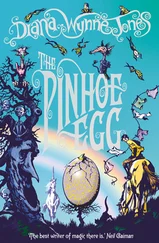His mind still on politicians and Patta, Brunetti could think of nothing more than, ‘What?’
‘The boy who worked in the dry cleaner’s. The deaf one.’ He could tell from her voice that Paola was troubled, but it took him a moment to recall the boy, who sometimes used to be seen in the back room of the shop, folding things or standing idly, head moving back and forth as his eyes followed the motions of the iron that imposed order on shirts and dresses. Brunetti’s memory of him was hazy, save for the folding and for the odd, arrhythmic way the boy moved.
‘Yes,’ he finally said. ‘Why?’
‘He’s dead,’ Paola said, sounding saddened by the news. But then she said, ‘At least that’s the rumour in the neighbourhood.’
‘What happened?’ Brunetti asked, wondering what sort of accident could have befallen him and how his deafness might have contributed to it. Many of the delivery men who pushed their wheeled metal carts around the city cried ahead to warn people to get out of the way: because he could not hear, the boy might have been run over, crushed, anything. Or knocked down the steps of a bridge or into the water.
‘A man at the bar where I was having coffee said he saw an ambulance in front of a house this morning, and when they came out they were carrying one of those plastic boxes. He knew that’s where he lived – the deaf boy – so he asked the men if that’s who it was. All they told him was that it was someone from the first floor, a man.’ She paused, then asked, ‘They carry dead people in those, don’t they?’
Brunetti, who had seen too many of them, confirmed this.
There was a long silence, and then Paola said, ‘I don’t know what to do.’
Her remark confused Brunetti. If he was dead, there was nothing she, or anyone, could do. ‘I don’t understand.’
‘His family. Do something for them.’
‘Do you even know who his family is?’
‘It’s the people at the dry cleaner’s, isn’t it?’
Brunetti felt a flash of irritation that his time was being taken up with this, and that was followed by a flash of shame. Was he meant to reprimand his wife for an excess of compassion? ‘I don’t know. I’ve never paid attention.’
‘It must be,’ Paola said. ‘He was pretty useless as a worker. I always figured he was the son of the woman who runs the place or maybe of the one who irons. No one else would have hired him.’ After a moment, she added, ‘Though I haven’t seen him there for a long time. I wonder what happened?’
‘I’ve no idea,’ Brunetti said. ‘You can’t very well ask, can you?’
‘No. No.’
‘Maybe the newsagent?’
‘You know I can’t ask him,’ Paola said.
Four years ago, Paola and the newsagent had got into a heated discussion when she asked him why he sold a certain newspaper and the man replied that it was because people wanted it. That had led Paola, a woman not known for moderation in argument, to ask if he’d use the same justification if he sold drugs, before putting down the money for her newspapers and walking away.
It had been Brunetti, after she recounted the incident at dinner, who had told her that the man’s son had died some years before of an overdose, information that had reduced Paola to tears of shame. She had gone back the next day and tried to apologize, but the man had turned his back on her and returned to untying a parcel of magazines. Since then, it had fallen to Brunetti to buy the newspapers.
‘Would you ask him? Or someone else in the neighbourhood?’ she asked.
Before he agreed, Brunetti wanted to know: ‘Is this curiosity or concern?’
‘Concern,’ she answered immediately. ‘He was such a miserable creature. I don’t even know how long I saw him there. Or on the street. Or standing there in the back room, folding clothes or watching them work. And always looking so terribly sad.’
Brunetti remembered the boy’s awkward gestures, the odd jerking of his head that suggested other problems more serious than the deafness that had cut him off from the world.
‘Was there anything else wrong with him?’ he broke in to ask.
‘What do you mean? Isn’t being a deaf mute enough?’
‘Was he mute, too?’
‘Did you ever hear him speak?’
‘No,’ Brunetti answered, unsure whether this meant he had to be dumb, as well as deaf. ‘I told you; I hardly noticed him.’
Paola sighed, ‘I’m afraid that’s what most people will say. How awful, eh?’
‘Yes. It is.’
‘Oh my God,’ Paola said. ‘I don’t even know his name if I want to ask about him. He’s just the boy who doesn’t talk. Didn’t talk.’
‘I think people will know who you mean.’
‘That’s not what I’m talking about, Guido,’ she said, words that would usually be spoken angrily but now radiated only sadness. ‘That’s what’s so awful. Think about how old he must have been. Thirty-five? Forty? More? And we all referred to him as a boy.’ Then, after another pause, ‘The boy who doesn’t talk.’
‘I’ll see if they know anything downstairs,’ Brunetti volunteered. ‘And at the hospital.’
‘Thanks, Guido,’ she said. ‘I know it sounds as if I’m being a baby over this, but it’s terrible – to have a life like that, and then die, and people don’t even know your name.’
‘I’ll see what I can find out,’ Brunetti said and replaced the phone.
He picked it up immediately and dialled the number of the morgue. Identifying himself to Rizzardi’s assistant, he asked if they had had a man brought in from San Polo that morning.
‘He’s with him now,’ the man explained, quite as though Rizzardi were a normal doctor and were in the examining room having a look to see what the problem was.
‘I’m in my office. Would you ask him to call me when he’s finished?’
‘Of course, Dottore.’
Paola was right, he realized. To have lived a life, even a life cut short in the middle, and not to have a name to be called by, to live among people who did not know your name – Brunetti had no word to describe it. If the man – he would call him a man now, not a boy – had been mute as well as deaf, how had he communicated with the world around him? How had he expressed even the most simple desire, save by pointing at the thing he wanted? But what if he were cold or hot or wanted something to eat: was he reduced to a life of pantomime? Had someone taught him to read? To write? To sign? And if not, then how did he establish contact with the world?
It daunted Brunetti, the pathos of it.
The phone rang, and when he answered he heard Rizzardi’s voice. ‘ Ciao , Guido. Franco said you called about the man from San Polo.’
‘Yes. My wife called me and told me he was dead. We knew him. Sort of.’
Rizzardi did not ask for clarification, leading Brunetti to wonder whether all any of us ever do is sort of know people. He continued, ‘So I called to ask you to tell me what you can about him.’
‘His name is,’ Rizzardi began, said, ‘Wait a minute,’ and set the phone down. He was back in a few seconds
and said, ‘Davide Cavanella, or at least that’s the name written on the papers that came with him. Someone at the address must have given it to them.’
‘What caused his death?’
‘It could be suicide,’ the pathologist said.
‘Suicide?’ repeated an astonished Brunetti. ‘But he was a deaf mute. And he may have been retarded.’ He had no idea why those two things should exclude the possibility of suicide, but they did.
‘I’m not sure I see the connection,’ Rizzardi answered mildly. ‘If anything, I’d think those poor devils would be more likely to kill themselves than the rest of us. At least we have the comfort of complaining about our lives and having people listen to us.’
Читать дальше












